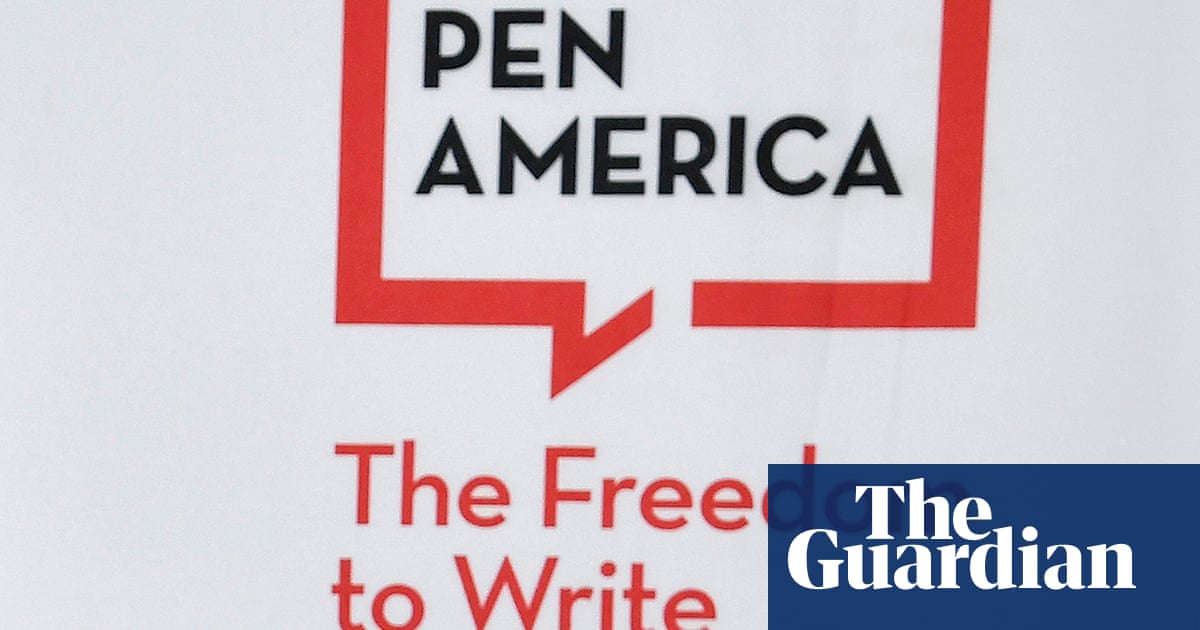Writers in the US are at growing risk amid a worldwide crackdown on free speech that has begun to spread to countries previously renowned for unfettered expression and openness, according to a leading writers’ advocacy group.
PEN America said it was concerned about an emerging threat from the Trump administration as it published its annualFreedom to Writeindex report, which showed that the number of writers jailed worldwide had jumped for the sixth year running to 375 in 2024, compared with 339 the year before.
Covering a period ending beforeDonald Trumptook office on 20 January, the 35-page report records China as once again the biggest jailer of writers, with 118 behind bars, up from 107. Iran is the second highest incarcerator, with 43, down from 49 a year earlier, although those released had been freed with conditions that forced them into silence.
Israel is in fifth place, with 21 writers behind bars, including eight in administrative detention – statistics at odds with the country’s self-proclaimed status as a democracy that tolerates dissent. Other prominent incarcerators are Russia, Saudi Arabia, Egypt and Turkey, a Nato ally and ostensibly still a democracy under the leadership of its strongman president, Recep Tayyip Erdoğan.
The index has been published for the past six years and has hitherto generally highlighted the dangers faced by writers living under repressive regimes, although Israel also appeared in the previous year’s report.
While making no explicit mention of threats to free speech under the US president following a spate of arrests of foreign students who have campaigned for Palestinian rights and accusations of trying to curtail academic freedom, its text clearly hints at the potential for a future clampdown.
“As geopolitics continue to shift and authoritarian tendencies spread to countries that were once considered safely anchored in openness, we are seeing that free expression, and therefore writers, are increasingly in the crosshairs of repression in a much wider range of countries,” says the index.
“[Governments] recognize the power of words to affirm historical truths, give voice to those whose narratives have been excised from the historical ledger, develop or maintain culture, and hold institutions to account … Democracies have been slow to understand that attacks on writers are both the precursor to and a consequence of broader attacks on human rights, democracy, and free expression.”
In an interview, Karin Deutsch Karlekar,PENAmerica’s director of writers, said the comments reflected a fear for writers on the domestic front, saying that the US had not witnessed such a “broad and deep attack on ideas” since the McCarthyite anticommunist witch-hunts of the 1950s.
She cited the case ofRümeysa Öztürk, a Turkish doctoral student at Tufts University in the US on a Fulbright scholarship, who was detained and earmarked for deportation after co-authoring an opinion article criticizing Israel’s military offensive in Gaza.
“People are being detained for their ideas and their writing in the US. This is definitely worrying,” she said.
“I would say it’s only probably a matter of time when writers that we would include in our database and index in the US being detained as well. I fully expect that next year, we may well have cases in the United States in our index.”
Sign up toHeadlines US
Get the most important US headlines and highlights emailed direct to you every morning
after newsletter promotion
PEN’s index generally includes fiction authors, poets, singer-songwriters, online writers and opinion writers, while excluding journalists who write news reports.
Karlekar said the threatening atmosphere – which has seen university authorities pressured to crack down on views perceived as antisemitic – had already led to self-censorship.
“I think, particularly on issues concerning Israel and Palestine over the past year and a half, there has been already a chilling effect,” she said. “Given what’s happening with the Trump administration, there may well be more issues that people are afraid to take on.
“If someone is interested in looking at climate issues or transgender issues or women’s rights, those are in the crosshairs of the administration [and] there may well be more self-censorship on some of these issues as well.”
Restrictions on free speech in the US were likely to worsen the situation for writers elsewhere, especially if Washington were to retreat from its traditional status as champion of human rights.
“The US has traditionally been a strong supporter of free expression around the world” Karlekar said. “It really helps when governments like the US or Britain speak out about these cases. If the US is really stepping back in terms of its role of defending free expression and being a standard bearer for this issue, that’s big blow in terms of global trends and getting writers out of jail in other countries.”
